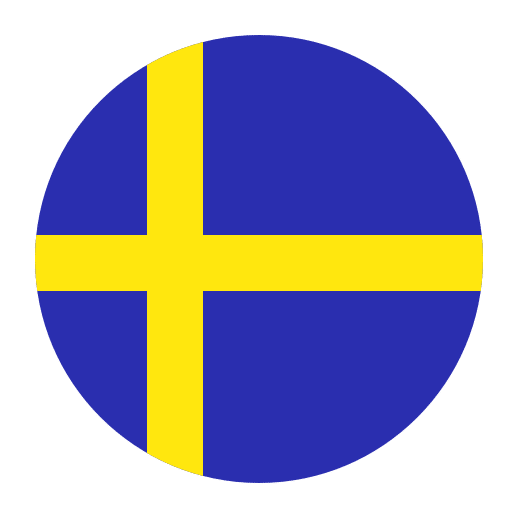Learning Swedish can be a rewarding and enriching experience. As with any language, understanding the nuances and differences in vocabulary is key to mastering it. One area where learners often get confused is the distinction between “morgon” and “morgnar”—terms that both relate to the concept of “morning” but are used in different contexts. In this article, we’ll delve deep into these words, their usage, and how you can effectively incorporate them into your Swedish vocabulary.
Morgon: Singular Morning
The word “morgon” is the Swedish term for “morning.” It is used when referring to a single morning, either in general or a specific one. For example:
– Jag vaknade tidigt i morse. (I woke up early this morning.)
– Varje morgon dricker jag kaffe. (Every morning, I drink coffee.)
In these sentences, “morgon” is used to describe either the singular event of waking up in the morning or the habitual action of drinking coffee every morning.
Common Phrases with Morgon
Swedish, like English, has many common phrases that include the word “morgon.” Here are a few you might encounter:
– God morgon! (Good morning!)
– Morgonkaffe (Morning coffee)
– Morgonpromenad (Morning walk)
– Morgonstund har guld i mund. (The early bird catches the worm. Literally: “Morning hour has gold in its mouth.”)
Understanding these phrases is vital for everyday communication in Swedish. They can help you sound more natural and fluent when speaking the language.
Morgnar: Plural Mornings
While “morgon” refers to a single morning, “morgnar” is the plural form, meaning “mornings.” This form is used when you are talking about multiple mornings. For example:
– Jag älskar soliga morgnar. (I love sunny mornings.)
– På helgerna brukar jag sova länge på morgnarna. (On weekends, I usually sleep in during the mornings.)
In these sentences, “morgnar” is used to talk about more than one morning, either in a general sense or within a specific timeframe.
Common Phrases with Morgnar
Just like “morgon,” “morgnar” also appears in several common Swedish phrases. Here are a few examples:
– Tidiga morgnar (Early mornings)
– Kalla morgnar (Cold mornings)
– Stressiga morgnar (Stressful mornings)
Learning these phrases can help you better describe various types of mornings, enhancing your conversational skills.
Grammar Rules and Usage
Understanding the grammatical rules surrounding “morgon” and “morgnar” is crucial for proper usage. Swedish, like many languages, has specific rules for singular and plural forms.
Singular and Plural Forms
In Swedish, nouns can change form based on whether they are singular or plural. The word “morgon” is a singular noun, while “morgnar” is its plural counterpart. Here’s a quick breakdown:
– Singular: Morgon (morning)
– Plural: Morgnar (mornings)
To form the plural of “morgon,” you add the suffix “-ar.” This is a common pattern for many Swedish nouns, although there are exceptions and irregular forms.
Definite and Indefinite Forms
In addition to singular and plural forms, Swedish nouns also have definite and indefinite forms. For “morgon” and “morgnar,” these forms are as follows:
– Indefinite Singular: Morgon (morning)
– Definite Singular: Morgonen (the morning)
– Indefinite Plural: Morgnar (mornings)
– Definite Plural: Morgnarna (the mornings)
Understanding these forms is important for constructing grammatically correct sentences. For example:
– Jag gillar morgonen. (I like the morning.)
– Jag gillar morgnarna. (I like the mornings.)
In these sentences, the definite forms “morgonen” and “morgnarna” are used to specify particular mornings that the speaker likes.
Common Mistakes and How to Avoid Them
When learning any language, it’s natural to make mistakes. Here are some common errors English speakers make when using “morgon” and “morgnar,” along with tips to avoid them:
Mixing Up Singular and Plural Forms
One common mistake is confusing the singular “morgon” with the plural “morgnar.” This can lead to sentences that sound awkward or incorrect. To avoid this, practice using both forms in different contexts. For example:
– Write sentences describing what you do on a typical morning (using “morgon”).
– Write sentences describing your weekend mornings (using “morgnar”).
By practicing both forms, you’ll become more comfortable with their correct usage.
Forgetting Definite and Indefinite Forms
Another common mistake is forgetting to use the definite and indefinite forms correctly. This can also make your sentences sound awkward. To avoid this, practice using the definite and indefinite forms in various sentences. For example:
– Describe a specific morning using the definite form (“morgonen” or “morgnarna”).
– Describe general mornings using the indefinite form (“morgon” or “morgnar”).
With practice, you’ll become more confident in using these forms correctly.
Practical Exercises
To help you master the use of “morgon” and “morgnar,” here are some practical exercises:
Exercise 1: Fill in the Blanks
Fill in the blanks with the correct form of “morgon” or “morgnar”:
1. Jag dricker alltid kaffe på _______. (I always drink coffee in the morning.)
2. _______ är min favoritdel av dagen. (Mornings are my favorite part of the day.)
3. Varje _______ går jag till gymmet. (Every morning, I go to the gym.)
4. _______ kan vara stressiga. (Mornings can be stressful.)
Answers:
1. morgonen
2. Morgnar
3. morgon
4. Morgnar
Exercise 2: Sentence Construction
Construct sentences using the following words and the correct form of “morgon” or “morgnar”:
1. tidig, promenad
2. solig, dag
3. kaffe, varje
4. lång, helger
Sample Answers:
1. Jag tar en tidig promenad varje morgon. (I take an early walk every morning.)
2. En solig morgon gör mig glad hela dagen. (A sunny morning makes me happy all day.)
3. Jag dricker kaffe varje morgon. (I drink coffee every morning.)
4. På helgerna gillar jag att sova länge på morgnarna. (On weekends, I like to sleep in during the mornings.)
Conclusion
Understanding the difference between “morgon” and “morgnar” is crucial for mastering Swedish. By learning the singular and plural forms, as well as the definite and indefinite forms, you’ll be able to construct accurate and natural-sounding sentences. Remember to practice regularly, use the forms in different contexts, and be mindful of common mistakes. With time and effort, you’ll find yourself using “morgon” and “morgnar” with ease and confidence. Happy learning!

